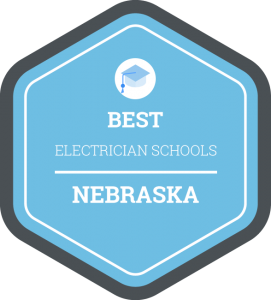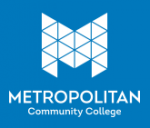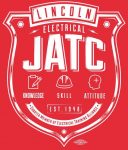If you want to learn the skills needed for an electrician profession, there are plenty of schools in Nebraska that offer high school and post-secondary programs.
Some programs last less than one year, while others take up to five years to complete.
On this page, we have compiled information about the top 10 electrician schools in the state.
You will also find out more information about curriculum, tuition costs, accreditation, and a variety of other relevant factors.
We invite you to read our list and, depending on your schedule, learning skills, and career aspirations choose the best format.
1Southeast Community College

About the School
Southeast Community College provides certificate, diploma, and degree programs that prepare students for employment in a wide range of industries.
The college is accredited by the Higher Learning Commission.
Courses Offered
The Southeast Community College catalog includes an Electrical & Electromechanical Technology pathway and an Energy Generation pathway.
The Energy Generation path can lead to a Certificate, Diploma, or Associate’s Degree, depending on the program duration and the credits acquired.
Certificate and two-year degree options are also available for the Electrical and Electromechanical Technology pathway.
Tuition costs vary depending on the program.
The Electrical & Electromechanical Technology program includes classes on:
- DC Principles
- AC Principles
- Motors and Controllers
- Industrial Automation Systems
- Industrial Electronic Controls
- Programmable Logic Controllers
- Fluid Power
- Manufacturing Processes for Electromechanical
- And more
The Energy Generation Operations program covers topics such as:
- Mechanical and Fluid Fundamentals
- Electrical Power Theory
- Green Energy Techniques
- Electric Power Transmission Fundamentals
- Reactor Safety
- And more.
The program includes 60 credits without a Nuclear focus and 61 credits with a Nuclear focus.
Contact Information
- Address: 4771 W. Scott Rd. Beatrice, NE 68310
- Phone: 402-228-3468
- Website: https://www.southeast.edu
2Northeast Community College

About the School
Northeast Community College offers more than 130 programs that cover a wide range of industries, from health science and business to hospitality and engineering.
Tuition is $108 per credit hour for Nebraska residents.
Fees sum up to $20 per credit hour.
Financial aid is available for students who qualify.
Northeast Community College is accredited by the Higher Learning Commission.
Courses Offered
The college’s catalog includes an Energy and Engineering pathway that teaches students about research, design, machines, engines, and structures.
The pathway includes the following courses:
- Pre-Engineering- Transfer- SDSMT
- Pre-Engineering- Transfer- UNL
- Utility Line
- Wind Energy
Degree, diploma, and certificate programs are available at the college.
The Wind Energy program includes courses on:
- First Aid
- Basic Electricity
- Wind Energy Fundamentals
- Mechanical Systems for Wind Energy
- Wind Electronics
- Fluid Fundamentals
- Wind Turbine Siting
- And other subjects
Contact Information
- Address: 801 East Benjamin Avenue, Norfolk, Nebraska 68701
- Phone: (402) 371-2020
- Website: https://northeast.edu
3Western Nebraska Community College
About the School
Western Nebraska Community College provides training programs in a wide range of areas of study.
The college has three campuses: Alliance, Scottsbluff, and Sidney.
Western Nebraska Community College is accredited by the Higher Learning Commission.
Tuition is $106.50 per credit hour for Nebraska residents.
Courses Offered
The Western Nebraska Community College catalog includes Skilled and Technical Sciences programs such as:
- Aviation Maintenance
- Diesel, Truck & Heavy Equipment Technology
- Engineering
- Powerline Construction & Maintenance Technology
- And more
The Powerline Construction & Maintenance Technology program prepares students for a career in an in-demand, hands-on profession.
The following award types are available for students who attend this program:
- Associate in Applied Science in Powerline Construction & Maintenance Technology
- Certificate in Powerline Construction & Maintenance Technology
- Diploma in Powerline Construction & Maintenance Technology
Depending on the type of degree they are pursuing, students can graduate in 12 or 15 months.
The Powerline Construction & Maintenance Technology curriculum covers topics such as:
- OSHA 10 General Industry
- Commercial Driver’s License
- Basic Climbing
- Power Use
- Overhead Power Line Construction
- Applied Electric Science for Powerline
- Street Lighting
- Electrical Equipment Structure and Design
- And more
Contact Information
- Address: 1750 Sweetwater Ave. Alliance, NE 69301
- Phone: 308.763.2000
- Website: https://www.wncc.edu
4Metropolitan Community College
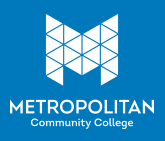
About the School
The Metropolitan Community College provides education and training for students who want to prepare for employment.
The college has campuses at multiple locations in Nebraska, including Fort Calhoun, Omaha, Fort Omaha, and Elkhorn.
Its Fort Omaha campus spans 100,000 square feet consisting of modern classrooms, labs, and student-dedicated space.
Metropolitan Community College is accredited by the Higher Learning Commission.
Courses Offered
The college’s catalog includes Construction and Industrial, Transportation, and Utility Line programs, among many other pathways.
Electrical Technology students learn about electrical systems in residential, commercial wiring, and industrial motor controls.
The following degree and certification options are available:
- Associate in Applied Science in Electrical Technology
- Certificate of Achievement in Building Electrical
The Associate in Applied Science program requires 63.5 credits.
Students in Construction and Industrial, Transportation, and Utility Line programs take classes such as:
- Basic Electricity
- Residential Wiring
- Commercial Wiring
- Basic Equipment Controls
- Electric Services and Transformers
- Blueprint Reading
- And more
Contact Information
- Address: 5300 N. 30th St., Omaha, NE 68111
- Phone: 531-622-2272
- Website: https://www.mccneb.edu
5Central Community College

About the School
With campuses at seven Nebraska locations, the Central Community College offers 175 degrees and awards.
Community education and workforce training are also available at the college.
Tuition is $94 per credit for Nebraska residents.
Additional fees bring the total per-credit cost to $110 for Nebraska students.
Total program expenses vary depending on the number of credits.
Courses Offered
The Central Community College catalog includes a variety of programs, including Electrical Technology and Energy Technology pathways.
The following related degrees and awards are available:
- Energy Technology Associate in Applied Science Degree
- Energy Technology Diploma
- Advanced Energy Certificate
- Solar Power Certificate
- Wind Power Certificate
- Electrical Technology A.A.S. Degree
- Residential Diploma
- Commercial Wiring Certificate
- Electrical Fundamentals Certificate
- Residential Wiring Certificate
The cost and the number of credits required for graduation vary depending on the pathway.
The Commercial Wiring Certificate program requires 12 credits and includes classes on:
- Electrical Safety
- Electrical Systems
- Commercial Code Study
- Commercial Lighting & Motor Application
- Grounding & Bonding
Contact Information
- Address: P.O. Box 1027, 4500 63rd Street, Columbus, NE
- Phone: 877-222-0780
- Website: https://www.cccneb.edu
6Mid-Plains Community College
About the School
Mid-Plains Community College provides a variety of academic programs at its seven campuses.
In-state tuition is $100 per credit hour.
Additional fees are $16 per credit.
Mid-Plains Community College is accredited by the Higher Learning Commission.
Courses Offered
The college’s catalog includes an Electrical Technology program.
Students enrolled in this program can choose between taking classes in the summer or participating in an internship.
The internship puts students on a job for nine months.
The program offers an Associate of Applied Science and a diploma option.
Those who complete the one-year program may earn one year of credit toward a journeyman’s license.
Among many other skills, students enrolled in this program learn how to:
- Follow procedures to prevent the injuries and hazards of working with electrical circuits and equipment
- Perform basic installation of electrical equipment and materials
- Apply electrical theory to specific jobs
- Interpret the applicable NEC sections
- And many other skills
An Electrical Automation Associate in Applied Science program is also available.
This program requires 60 credits for graduation and includes classes on:
- Electrical Theory and Safety
- Electronics
- Schematics
- Automation Control Internship
- Human Machine Interface
- Intro to Programming
- Pneumatic and Hydraulic Fundamentals
- And more
Contact Information
- Address: 1205 East Third St. McCook, NE 69001
- Phone: 308-345-8100
- Website: http://www.mpcc.edu
7The Career Academy

About the School
The Career Academy provides dual credit programs in a variety of career fields.
The programs help students in the 11th and 12th grades earn high school and college credits simultaneously.
Courses Offered
The academy offers a construction pathway that includes courses in Residential and Masonry, Electrical, and Heating and Air Conditioning fields.
The program is open to 11th and 12th-grade students.
The curriculum covers knowledge of basic residential and commercial construction skills, safety procedures, code knowledge, and many other skills.
Students take classes on:
- HVAC- Piping Principles
- Tools and Materials
- Construction and Processes
- DC Principles
- AC Principles
- Residential & Commercial Wiring
- And many other topics
In total, this program includes 20 dual credits in the Electrical field, 12 credits in Residential Construction & Masonry, and 12.5 credits in Heating and Air.
An Intro to Construction class is highly recommended before enrolling in this pathway.
Students are also encouraged to take Intro to Woods Manufacturing, Intro to Engineering Design, and CAD- Architecture classes.
Contact Information
- Address: 8800 O Street, Lincoln, Nebraska 68520
- Phone: 402-325-4700
- Website: https://home.lps.org
8Lincoln Electrical Joint Apprenticeship and Training Center
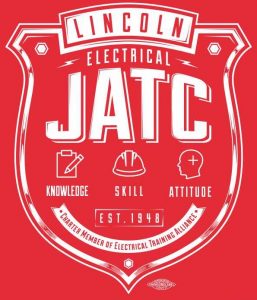
About the School
Lincoln Electrical Joint Apprenticeship and Training Center have been training electricians for more than 70 years.
Courses Offered
The Center offers the following courses:
- Inside Electrical Apprentice Training
- OSHA 10-Hour Training
- NFPA 70E Training
- Installer Technician Apprenticeship Training
- Journeyman License Upgrade Training
The center has a partnership with Southeast Community College to provide students with a five-year Inside program.
Students have the opportunity to earn an Associate in Applied Science degree.
A three-year Installer Technician Program requires mainly commercial and industrial telecommunications work.
During the apprenticeship, trainees receive wages and benefits.
To qualify for admission, applicants must be at least 17 years to apply and at least 18 years before being ready to work.
A valid Social Security Number is also required.
Applicants must be high school graduates or have a GED.
Continuing Education programs are also available in the following fields:
- OSHA 10-Hour
- First Aid/ CPR
- Code Update
- Electric Vehicle Charging Systems
- Code Calculations
- Lighting Control Basics
- Fiber Optic Basics and Fusion Splicing
Contact Information
- Address: 1415 Old Farm Road, Lincoln, NE 68512
- Phone: (402) 423-4519
- Website: http://lincolnelectricaljatc.org
9University of Nebraska

About the School
The University of Nebraska helps students start rewarding careers in a variety of fields.
Resident tuition is $259 per credit hour.
The University of Nebraska is accredited by the Higher Learning Commission.
Courses Offered
A major in Electrical Engineering is available at the university.
The program leads to a Bachelor of Science degree that helps students start careers in this growing industry or to pursue advanced degrees in fields such as medicine, biomedical, and law.
Students have a variety of research and outreach opportunities.
One such opportunity is the Wind for Schools initiative.
The university has a Laser and Optics Laboratory, a Renewable Energy Laboratory, an Integrated Circuit Design Laboratory, a signal processing laboratory, and other labs.
The Bachelor of Science degree requires 124 hours and a minimum cumulative GPA of 2.4 for graduation.
The Electrical Engineering curriculum covers classes such as:
- Introduction to Electrical Engineering
- Electrical and Computer Engineering Fundamentals
- Introduction to Electrical and Computer Engineering
- Special Topics in Electrical Engineering
- Electrical Circuits
- Electronics and Circuits
- Introduction to Power and Energy Systems
- Electromagnetic Theory and Applications
- And many more
Contact Information
- Address: 1400 R Street, Lincoln, NE 68588
- Phone: 402-472-7211
- Website: https://www.unl.edu
10Nebraska State Electrical Division

Nebraska State Electrical Division provides continuing education and pre-exam code classes.
Courses Offered
The pre-exam code class is offered online.
This is a brush-up session on the use of the National Electrical Code book.
The session covers sections on electrical theory and fire alarm installations.
The registration fee is $40 per course.
To qualify for a journeyman electrician license, applicants need:
- At least four years of verifiable experience in the electrical trade
- One year of work experience credit is awarded for completion of a two-year post-high school electrical course and an Associate’s degree in electrical technology
- Applicants who use Education and Military credits will qualify for a restricted license
- Those who have less than 4,000 years of verifiable experience in the State of Nebraska will also have a restricted license and will not be able to reciprocate with any other state.
- Applicants who have 8,000 hours of work experience but have not been registered apprentices for four years, will also have a restricted license.
The application fee is $60.
The exam covers National Electrical Code, Basic Electricity Theory, Nebraska State Electrical Art, Blueprint Reading, and Emergency Circuits- Including Fire Alarm Circuits.
Contact Information
- Address: 1220 Lincoln Mall, Suite 125, Lincoln, NE 68508
- Phone: (402) 471-3550
- Website: https://electrical.nebraska.gov
Schools Summary Table
Regional Salary in Nebraska
| Region | Employed | Avg. Annual Salary | Avg. Hourly Pay | Top 10% Annual Salary | Bottom 10% Annual Salary |
|---|---|---|---|---|---|
| Grand Island, NE | 220 | $55,430 | $26.65 | $75,150 | $36,940 |
| Lincoln, NE | 1,050 | $62,020 | $29.82 | $79,690 | $39,780 |
| Omaha, NE-IA | 3,200 | $65,230 | $31.36 | $92,320 | $39,740 |
* Employment conditions in your area may vary.
Final Thoughts
Now that you have read our list of the best Nebraska electrician schools, it’s time to continue the research and apply for the program that best meets your needs.
This is an important step so take your time before deciding where to enroll.

